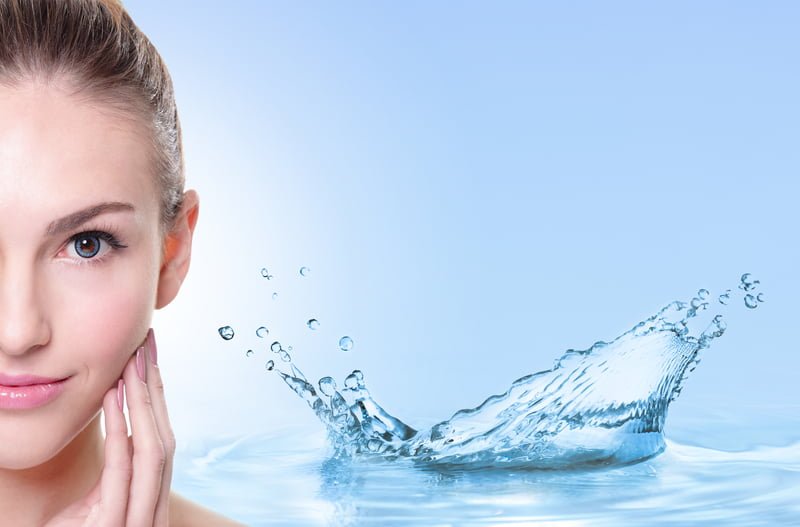Regardless of your age, it’s never too late nor too early to start taking care of your maturing age. Whether 30, 40, 50, or above, you can begin and stick to a skincare routine to keep your skin looking young and fresh. You don’t want sunburns or wrinkles to interfere with your self-esteem. For this reason, this article has information to help you take care of your mature skin. Continue reading to learn more!
1. Make Anti-Aging Creams Your Closest Friend
As you age, your skin elasticity is interfered with. As a result, your skin begins to sag or show wrinkles. At this point, there’s no doubt that you’re indeed aging. Fortunately, you can conceal these aging signs or slow them down by applying good anti aging creams. These creams contain minerals and vitamins to keep your skin looking youthful. You don’t need to hide your face anymore; invest in these products, and regain your confidence.
2. Use A Gentle Cleanser
Cleansing your skin is vital for removing skin care products, makeup, natural skin oils, bacteria, and pollutants. However, to successfully eliminate these elements from your skin and maintain its health, you must cleanse with a gentle cleanser. This way, you’ll have fresh-looking skin and allow skin care products to penetrate and work effectively.
A gentle cleanser also helps preserve the skin barrier to prevent damage and dehydration. Therefore, avoid using high pH cleansers since they can be harsh to your skin and might result in infections and irritation. Always choose cleansers with low pH for maximum care for your skin.
Additionally, it’ll be wise to stay clear of sodium lauryl sulfate since it’s harsh for your delicate skin. You might also want to avoid fancy cleansers rich in active ingredients since cleansers don’t last long on your skin.
3. Use A Toner If Necessary
Toners are manufactured to restore the skin’s pH after cleansing it with a high pH cleanser. However, a toner might not be necessary if you use a low pH cleanser. If this isn’t the case, always use a toner to avoid damaging your skin and keep it healthy.
4. Consider A Physical Or Chemical Exfoliant
As one age, their skin replenishes itself due to slowing down. At this point, dead skin is slowly replaced by new cells, unlike young skin. The slow replacement of dead cells with fresh ones makes the skin appear dull and uneven and might result in cracking and other skin conditions. Fortunately, a good exfoliant can easily get rid of dead cells.
There are two types of exfoliants: chemical and physical exfoliants. Avoid physical exfoliants like sugar scrubs or cleansers with beads when selecting an exfoliant. These physical cleansers are harsh on your skin and can damage it easily, especially since you’re dealing with a mature one. Instead, settle for a smooth washcloth or sponge.
As far as chemical exfoliants are concerned, they dissolve the link between your skin cells, allowing them to detach. Chemical exfoliants are suitable for any skin texture and age. It’s advisable to consider alpha-hydroxy acids (AHAs) exfoliants for mature skin. These acids are also found in serums, toners, and at-home peels.
5. Begin Using Retinoids
As time passes, the skin begins to lose collagen, a protein that keeps it smooth and firm. Once this happens, the skin starts to sag, resulting in older-looking skin. It’s advisable to begin using retinoids and vitamin C to prevent the further effect of low collagen on your skin. Besides increasing collagen, these elements are ideal for soaking environmental and biological oxidative stress that can cause aging. To begin protecting your skin and increasing collagen levels early, you can start incorporating retinoids in your skincare routine as you hit thirty.
6. Keep Your Skin Moisturized
Mature skin has less sebum. While it might mean fewer acne cases, it also means dry skin. Fortunately, you can solve dryness issues by keeping your skin moisturized.
When shopping for a moisturizer, settle for one with water-binding humectants. You can also consider using petrolatum at night to prevent skin water evaporation. Always ensure your skin is clean before moisturizing it to avoid trapping bacteria.
7. Make Sunscreen Your Close Friend
You can have a perfect skincare routine, but it won’t be helpful if you don’t protect your skin from the sun. The sun has countless effects on your skin, most of which are associated with skin aging. For example, the sun’s ultraviolet rays can age your skin by:
- Developing uneven pigmentation on your skin
- Interfering with collagen and elastin leads to thin skin and wrinkles
To avoid such incidents, always use sunscreen as long as you’re out in the sun. Daily sunscreen application can eliminate aging spots and wrinkles and enhance skin texture.
Besides sunscreen, you can also protect your skin against harmful sun rays by wearing protective clothing like long-sleeved shirts and tops, sunglasses, and hats, and avoiding the sun at midday.
Conclusion
With age comes wisdom, and so does it affect one’s skin. Effects that indicate the signs of aging. While there are no ways to stop pausing years from counting, there are lots of things you can do to take care of your mature skin and prevent it from looking too old. From leading a healthy life to upgrading your skincare routine, you can successfully maintain younger skin even in old age. If you’re looking forward to caring for your mature skin, consider the above guide as part of your skincare routine.









